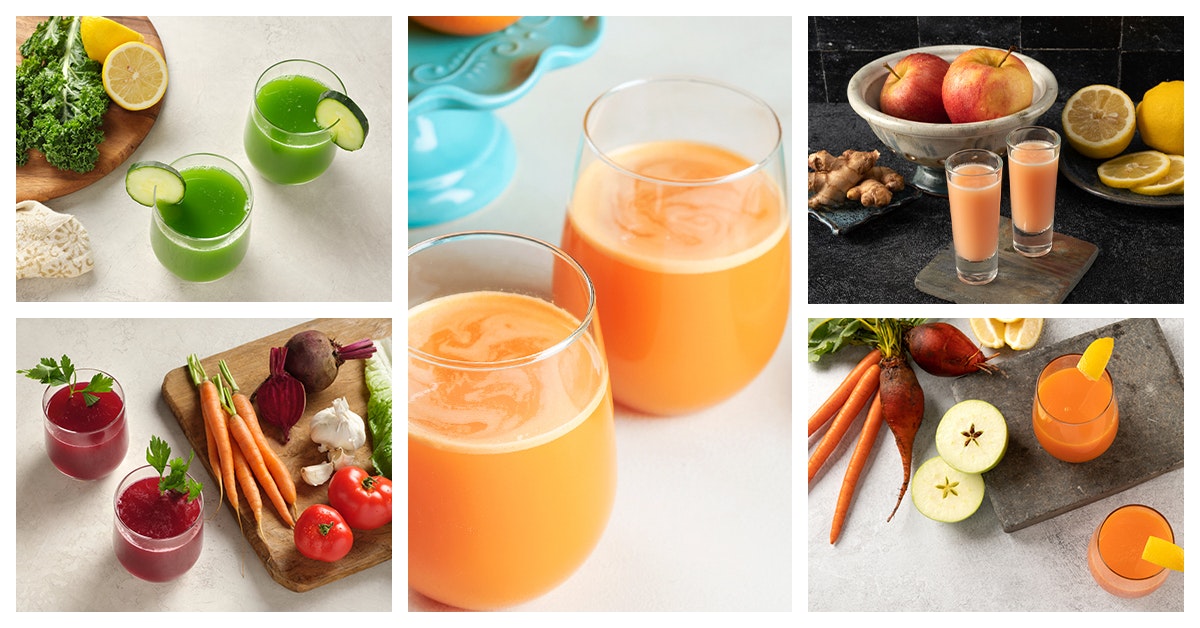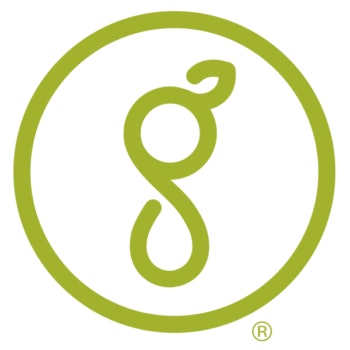Ingredients for Juices for Allergy Relief
The following list includes ingredients for juicing on their own or use in blended juice recipes. Furthermore, we’ll add some ingredients to add in small quantities to add flavor and anti-allergy nutrients, with vitamin C and quercetin the primary anti-allergy nutrients.
- Citrus juice: Citrus fruits such as oranges, lemons, and grapefruits are power-packed with vitamin C, which supports the immune system and can help reduce allergy symptoms. Vitamin C, is a natural anti-histamine, and has been shown to reduce the amount of histamine your body makes. Less histamine means fewer runny noses and less congestion.
- Pineapple juice: Pineapple contains high levels of vitamin C, which supports the immune system, and an enzyme called bromelain that can help reduce inflammation and may help alleviate allergy symptoms such as congestion and runny nose.
- Carrot juice: Carrots are rich in beta-carotene, a type of antioxidant, which can help reduce inflammation and improve respiratory health, while they help support the immune system. Carrot juice clears heat and irritation from the respiratory tract, so you can breathe easy again and find relief from fall allergies.
- Ginger juice: One 2016 study showed ginger lowered production of certain inflammatory cytokines that activate histamine production, thereby leading to prevention and alleviation of allergic rhinitis symptoms such as congestion and sneezing.
- Kiwi Juice: This sweet and tangy fruit is full of vitamin C, K and E, and potassium and a powerful immune system supporter.
- Apple juice: Apples are a good source of quercetin, which is a natural antihistamine. Drinking apple juice can help reduce allergy symptoms, such as sneezing and runny nose. Keep in mind that most of the quercetin is in the apple peel.
- Beet juice: Beets are rich in antioxidants and can help reduce inflammation. They can also help support liver function, which is important for detoxification and allergy relief.
- Tomato Juice: Though citrus tends to get all the glory when it comes to vitamin C, tomatoes are another excellent source of this essential nutrient. One medium-size tomato contains about 26 percent of your recommended daily value of vitamin C.
- Cucumber Juice: Fresh cucumber juice is a powerful rejuvenation tonic. The electrolyte content helps nourish and cool down overused adrenal glands and kidneys that are working extra hard to filter out toxic substances during an allergy season.
- Celery Juice: Celery juice is rich in mineral salts that have a positive impact on the chemistry inside the intestinal tract, which helps kill off H. pylori (bacteria that infects your stomach), reduce inflammation and entirely change your digestion for the better, all of which helps heal allergies.
- Watercress Juice: This tender green is one of the most nutrient dense foods on the planet. Full of vitamins and minerals, it offers a host of health benefits, one of which is boosting the immune system.
- Kale Juice: Kale is one of the world’s best sources of vitamin C, containing 4 times the amount found in spinach. A ¼ cup of kale juice provides over 84 milligrams of vitamin C.
Allergy Fighting Ingredients to Add to Juices
The following ingredients can be added to juice recipes to enhance the anti-allergy characteristics.
- Raw honey: Raw honey contains propolis, which is essentially the immune system of the beehive. It’s been used for centuries to support health and immune function. Research shows bee pollen can have anti-inflammatory, antifungal, and antimicrobial, properties in the body.
- Spirulina: Spirulina is a complete protein, meaning it contains all the essential amino acids that our body needs but cannot produce on its own. It is also a rich source of vitamins, minerals, and antioxidants, including B vitamins, iron, and beta-carotene. It is available in powder form, and can be added to cold-pressed juices.
- Turmeric juice: Turmeric is a spice that contains curcumin, a powerful antioxidant and anti-inflammatory agent that may help alleviate allergy symptoms.
- Parsley Juice: Parsley is a potent herb. It contains flavonoids luteolin and kaempferol, which support immune function. Add it to juice blends in amounts that would normally be eaten.
- Papaya Juice: A medium-sized papaya contains more than 200% of the vitamin C you require per day, helping to reduce the risk of heart disease and boost the immune system. It's also a good source of Folate.
Vitamin C Rich Additives
- Yellow Bell Peppers: Green bell peppers are immature. Yellow bell peppers are the highest in vitamin C.
- Jalapeños: Jalapeño is packed with vitamin C and also contains capsaicin, which reduces inflammation. Remove the seeds and membranes, and start with ¼ – ½ pepper.
- Mustard Greens: Start with one small leaf, as its flavor is quite strong. Best combined with less intense leafy greens, like spinach and romaine.
- Broccoli: A 2” broccoli stem is a good amount in a juice.
- Mint: Mint leaves contain menthol and rosmarinic acid, which acts as a decongestant and helps stop the allergic response.
Quercetin Rich Additives
- Radish Leaf: Radish leaves are edible and very nutritious. Use the fresh, green leaves of radishes, rinse them well and add them to your juice blend.
- Arugula: Arugula is spicy, so it is best combined with something sweet. You might want to skip the ginger or jalapeño when juicing arugula.
- Cilantro: This potent, heavy metal detoxifying herb is also rich in quercetin. Juice in amounts that you would normally eat.
- Banana Pepper: Fresh, not pickled – Banana peppers are loaded with quercetin.
- Red Leaf Lettuce: Mild and nutritious, large heavy heads of lettuce will give you the most yield.
- Watercress: Watercress is a rich source of quercetin
- Kale: Kale is loaded with both vitamin C and quercetin.
Final Thoughts
The health benefits of fresh juices for allergy relief are clear and numerous. From reducing inflammation to boosting the immune system, cold-pressed juices can provide a natural and effective way to combat the symptoms of allergies.
As part of an overall health plan, cold-pressed juices can be a wonderful addition to the arsenal of natural remedies for those suffering from allergies. The best part is that these juices can be easily created at home with a juicer, allowing for a convenient and cost-effective way to get the relief needed. It is worth exploring the potential of cold-pressed juices for allergy relief for those looking for a natural solution.
The information shared in this post is a combination of my personal experience, research, and knowledge as a certified holistic health coach, and is intended for educational purposes only. These statements have not been evaluated by the FDA and are not intended to diagnose, treat, cure, or prevent any disease or to be considered a substitute for professional medical advice.




Rate and Comment